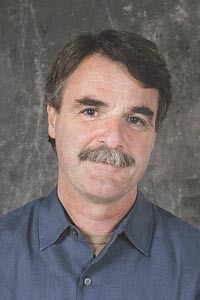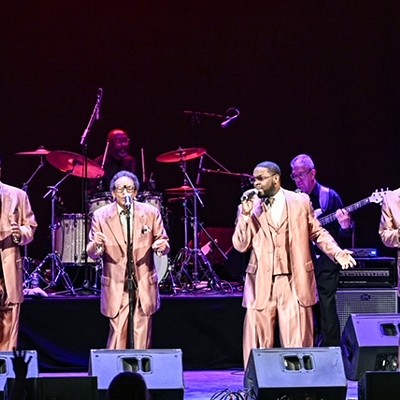"I have the best job in the world," says illustrator, author and nerd-kid hero David Macaulay. "My job is really first and foremost being a student. I get the best of both worlds."
Macaulay's just published The Way We Work, a book in his signature style -- intensely and methodically illustrated books that leave the reader smiling and with a pretty in-depth understanding of, say, how a castle or cathedral is built and operates, or how levers and nuclear power function. He speaks here Nov. 17, at the Drue Heinz Lectures.
The Way We Work is a departure for Macaulay, best known for writing about the mechanics of architecture and tools. It's a thorough examination of a piece of architecture many take for granted: the human body.
"Who wants to do just buildings?" Macaulay says, by phone from his home, in Vermont. The body is "unfamiliar to us, yet we are completely dependent on it. I wanted to address it for myself. Fifty-five years of blissful ignorance ..."
The intensive learning process included sitting in on med-school classes, and eventually becoming a faculty member at the University of Massachusetts. He also dove into books like Grey's Anatomy; and worked with Richard Walker, a medical writer, to ensure the accuracy of the text.
"The tough part was it was all brand-new. It was like learning a new language at the same time you're reading a text in that language," he says. "I struggled to learn so I could translate visually. Trying to write about a cathedral or mosque -- it's so logical. I could use my common sense."
What was most striking, Macaulay says, was his discovery that it's a cell's world and we're just living in it -- that the body is entirely arranged around cells ensuring their own survival.
"We are all neurons in the penthouse with a great view. We have this great system that allows us to escape from danger, to dance, the whole range," he says. "It's their survival. I'm anthropomorphizing cells!"
The chemical basis of cellular communication, which is the building block for every bodily process, struck him with its elegance. "They don't think, but the way they communicate -- it's not magic, it's almost mechanical."
So if it's all so thrilling and exquisite, why do so many of us take such terrible care of ourselves?
"I think it's a complacency that comes with familiarity," he says. "It's the most amazing thing we'll ever encounter, and we're born with it." His own complacency has been shaken a bit: "I'm getting more exercise, I get out there every day for an hour with the dog. I've cut back on my peanut M&M consumption."
Macaulay's richly detailed drawing style, he says, is much more about learning than art. "I think that's the illustrator's responsibility, to be able to position the reader to understand," he explains.
"I draw to learn, I draw to see better. ... It forces you to stop, stand still and focus on something," he says. "We're surrounded by things it's worth being curious about."
Next up for Macaulay's charming, informative and sometimes whimsical perusal are the imperiled natural systems of the planet, and the social reverberations of the machines and innovations he detailed in 1988's wildly popular The Way Things Work.
He's not sure which will come first, but the Earth book "is not going to have all the answers. It will provide the context within which to view the calamitous possibilities. It's an extension of the body book in a way."
The other will be a kind of historical look at the machines and inventions in The Way Things Work -- the way social history is shaped by technology, how it ricochets.
"If I can stay interested, I'm pretty sure I can keep readers interested."
The Drue Heinz Lectures Series presents David Macaulay 7:30 p.m. Mon., Nov. 17. Carnegie Music Hall, 4400 Forbes Ave., Oakland. $25. 412-622-8866















